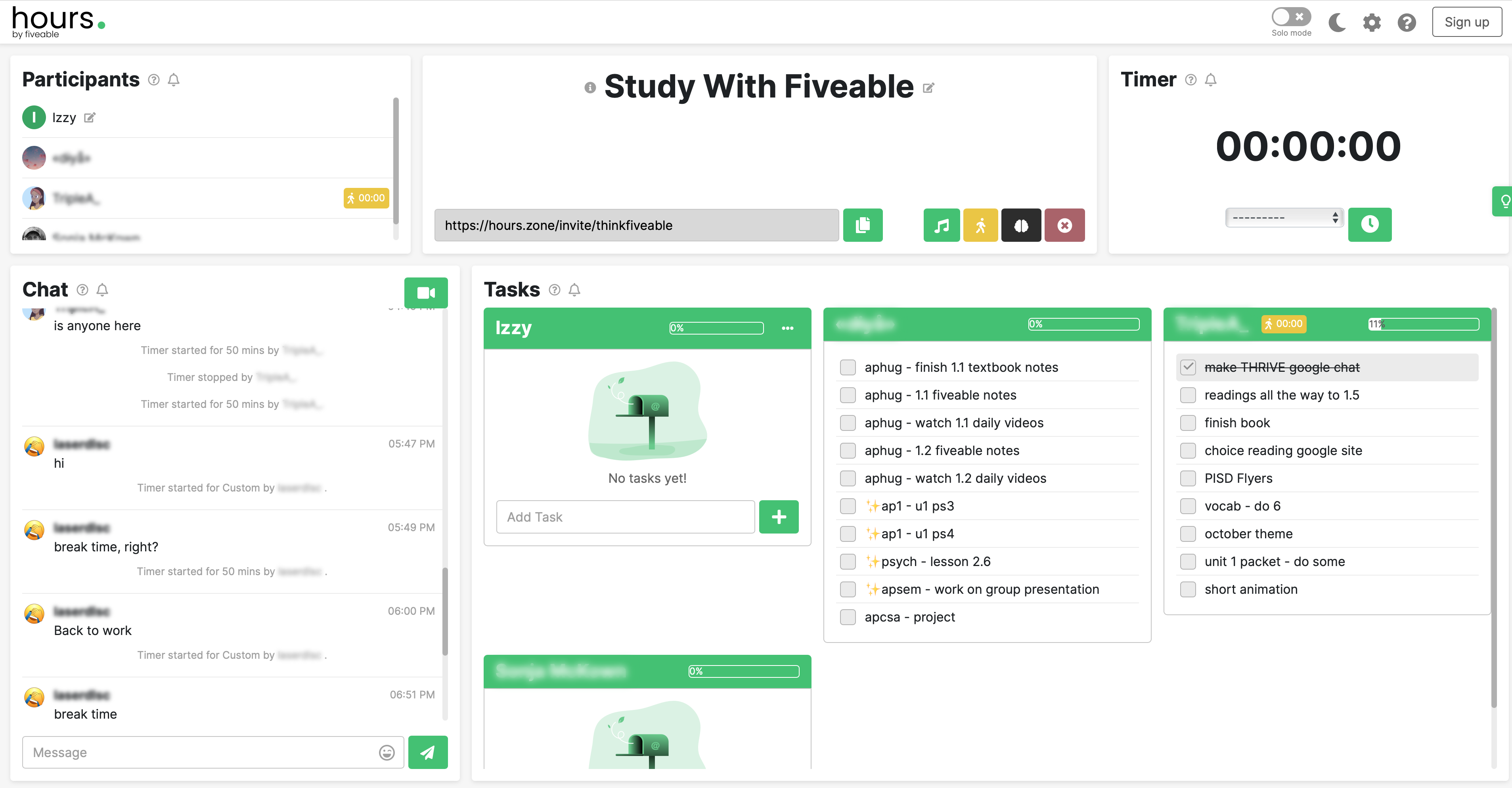As the pandemic continues to unevenly play out, the backdrop of our days has never felt more stagnant. While tech workers may turn to virtual HQs or Twitter Spaces for spontaneous chats, high schoolers are searching for casual places online to riff and study with friends. And Fiveable, a Milwaukee-based startup, fits the growing demand.
Fiveable began years ago as a free, online learning community for high school students with the focus of helping them pass Advanced Placement (AP) exams. It grew in popularity as it livestreamed five-hour “cram shops” focused on a specific subject, created study guides and managed a Discord with thousands of students. Now, it is evolving to become a social learning platform that helps any student navigate high school.
“We’re the hallways of the educational internet,” said Fiveable co-founder and CEO Amanda DoAmaral. “What do students do in the hallways of high school? They hang out with friends, they grab books, they figure out where they need to be next, they catch up — and a lot of what happens in Fiveable is that.”
DoAmaral’s vision, built alongside co-founder Tán Ho, fueled Fiveable’s latest financing event. The startup announced today that it has raised a $10 million Series A led by Union Square Ventures, with participation from Owl Ventures and Progression Fund. Previously, Fiveable had raised more than $4.2 million from investors, including BBG Ventures, Chelsea Clinton’s Metrodora Ventures, Emerson Collective, Beta Boom, gener8tor, Matchstick Ventures, Darrell Silver and Serena Williams.
The money will be used to help Fiveable grow its team to help it build more student-led online spaces.
“Where you live, what teacher you get, what resources you have access to? All of those things end up amounting to whether or not you’re going to be successful,” said DoAmaral. “And so what we want to really be able to do is put that power back into student’s hands, so that their ability to navigate who they want to be is a lot more obvious for them.”
Fiveable’s focus is sharpening to be more student-directed just months after it acquired Hours, a virtual study platform built by 16-year old Calix Huang. Hours allows students to create study sessions where each person has a task list and shared timer and playlist, a multiplayer experience that Fiveable students were naturally flocking to before the companies even merged. The co-founders explained that the acquisition helped them understand the magic within study groups, and will guide the product roadmap for future features.
“When we first started, we were livestreaming, we had some blogs and study guides,” said Ho. “But once we started opening up community spaces, that’s when all the students started rushing in and setting up pomodoro rooms…24/7.” The magic of that engagement helped the startup figure out that it may need to focus less on teacher-led study sessions, and more on ways to bring students together in creative ways.
It’s not doing so alone. One of Fiveable’s competitive advantages is that it has over 50 students as paid interns across all teams except its executive suite. Additionally, Fiveable’s current team is 50% women, 38% non-white and 24% LGBTQ+. The diverse perspectives help Fiveable stay on top of study trends, customer research and fresh perspectives.
“Establishing us for students as a space for not just for AP, but for all these other support systems, is definitely a challenge in front of us,” DoAmaral said.

Fiveable’s reach has grown immensely over the past year. More than 7.3 million students have come to the platform, with 3X year over year growth, per the startup. Its Discord community, launched in 2021, has over 25,000 users. And, when it was charging for access, it gave over 3,000 scholarships.
DoAmaral explained that because the startup is prioritizing growth over monetization right now, access to its platform is entirely free. Fiveable’s lead investor USV seems to be comfy with the potentially controversial choice considering two of its portfolio companies, Quizlet and Duolingo, similarly pursued bottoms-up growth and eventually made revenue.
“I think there’s a few categories that are as dynamic as K-12 education right now,” said Rebecca Kaden, partner at USV. “On one hand, that’s a challenge — it’s really hard to build products to keep up with a dynamic world, and to make sure you’re meeting students at scale where they are and how they’re thinking… on the other hand, that’s the opportunity.”
She added: “Fiveable is becoming the go-to platform and base for them to really live on and learn on, so navigating that line so that it’s opportunity amidst challenge is basically the kind of task of this business.”
In pursuit of growth, DoAmaral views the biggest challenge for Fiveable as one that any community has to reckon with: ensuring the integrity of the space from both an infrastructure, and community perspective.































Comment